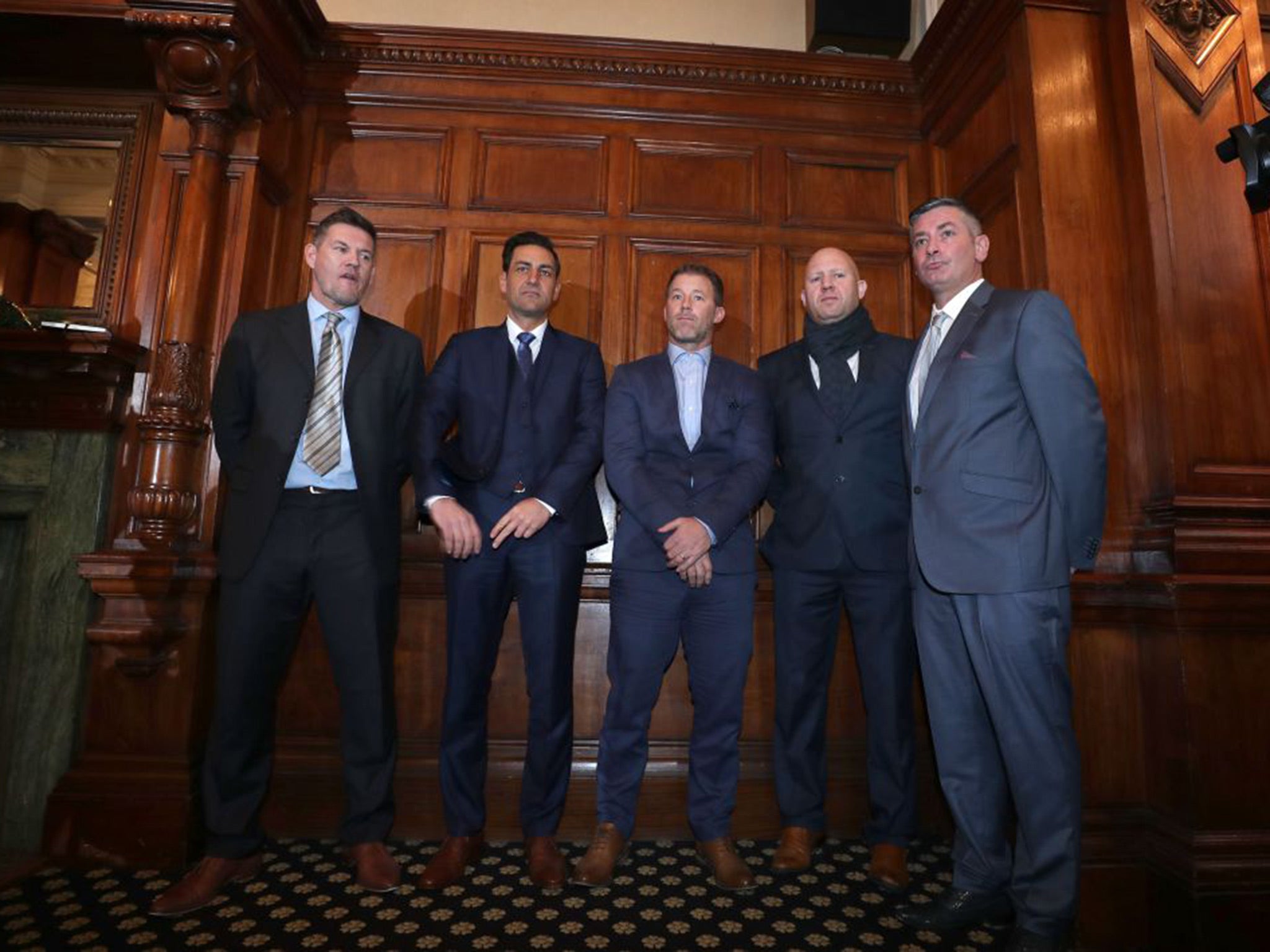Football club officials who knew of child abusers in ranks will not face criminal charges
Prosecution is only possible if police and prosecutors can establish that an individual procured, aided and abetted a crime

Your support helps us to tell the story
From reproductive rights to climate change to Big Tech, The Independent is on the ground when the story is developing. Whether it's investigating the financials of Elon Musk's pro-Trump PAC or producing our latest documentary, 'The A Word', which shines a light on the American women fighting for reproductive rights, we know how important it is to parse out the facts from the messaging.
At such a critical moment in US history, we need reporters on the ground. Your donation allows us to keep sending journalists to speak to both sides of the story.
The Independent is trusted by Americans across the entire political spectrum. And unlike many other quality news outlets, we choose not to lock Americans out of our reporting and analysis with paywalls. We believe quality journalism should be available to everyone, paid for by those who can afford it.
Your support makes all the difference.Football club officials who knew that a child abuser was operating with their ranks and did nothing to report or prevent it cannot be charged with a criminal offence, senior officers have indicated.
A total of 13 police forces are ploughing substantial resources into investigating allegations of historical abuse in football and The Independent understands that at least one of them is diverting resources from other criminal investigations into the football investigation.
But detectives will not be able to bring charges against individuals who might have known about abuse and did not raise the alarm, even if further assaults occurred as a result. A former Chelsea player alleged a week ago that the club’s former coach Dario Gradi knew that chief scout Eddie Heath had abused him and sought to talk his parents out of pressing their complaint. Mr Gradi, who denies any wrong doing, has not commented on the specific allegation. But to have visited the parents of an alleged victim and sought to placate them and prevent a crime being more widely known about would not constitute a criminal offence.
The absence of a legal responsibility to report a crime applies to most areas of criminal law, including murder, with prosecution only possible if police and prosecutors can establish that an individual procured, aided and abetted a crime – and actually ‘added’ something to it, such as harbouring an offender, for example.
The only exceptions are laws introduced to prevent money laundering, by which bank and financial industry staff have a legal duty to make disclosures. Those holding public office are also bound by law to disclose information if they know one of their colleagues has acted illegally.
The National Police Chiefs’ Council said on Friday that 83 potential suspects have now been identified in connection with allegations of historical child sexual abuse in football.
The figure comes from data and information collated by forces working on the case to Operation Hydrant – the national police body coordinating historical sexual abuse claims – and from 639 referrals from the NSPCC helpline. The information also shows that 98 clubs have been “impacted”, with the age range of victims spanning seven years through to 20 years.
The figure of 98 does not equate to clubs under investigation but refers to the number of clubs referenced when information is submitted.
“Allegations received by police forces across the country are being swiftly acted upon,” said Simon Bailey, chief constable of Norfolk and the lead for the National Police Chiefs’ Council. “We are ensuring an efficient and effective service-wide approach to investigating allegations, removing the potential for duplication and enabling the timely and effective sharing of intelligence and information between forces. We are also liaising closely with the Football Association to ensure all relevant information they hold is shared to inform investigations moving forward.

“We continue to urge anyone who may have been a victim of child sexual abuse to report it by dialling 101, or contacting the dedicated NSPCC helpline, regardless of how long ago the abuse may have taken place. We will listen and treat all reports sensitively and seriously. Anyone with any information regarding child sexual abuse is also urged to come forward.”
He added: “As the number of calls being received across the service is higher than usual, it may take longer than normal for an officer from a local force to make contact to follow up from the initial call. Please be assured that the information provided will be taken seriously and acted upon.”
Join our commenting forum
Join thought-provoking conversations, follow other Independent readers and see their replies
Comments